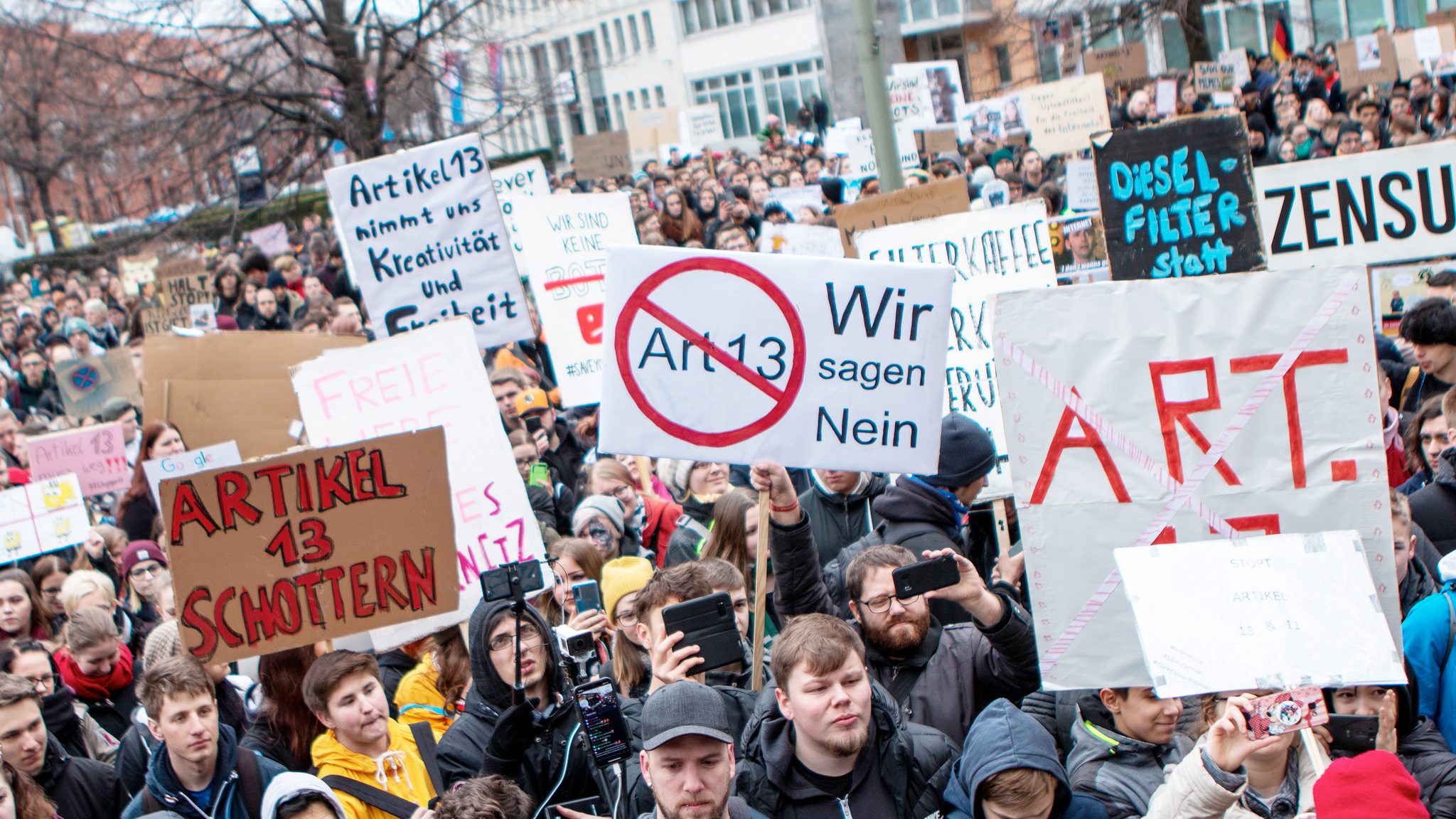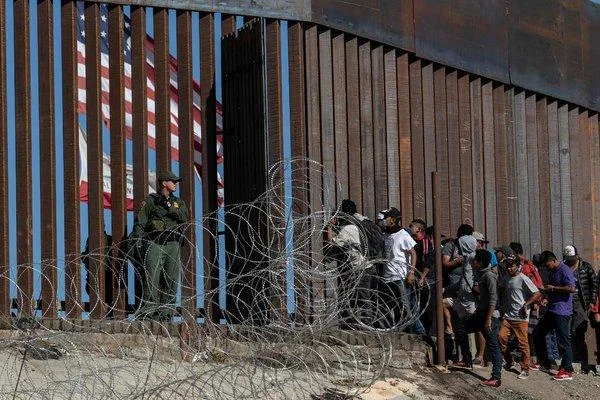EU's Adoption of Article 13 Met By Backlash From Big Tech & Public Protests By Phillip Howard
The European Union Directive on Copyright in the Digital Single Market passed in the European Union General Assembly despite receiving backlash from both big technology companies and individuals. The law, which was designed to update decades-old copyright laws in Europe, looks to shift the burden of responsibility of checking for copyright infringement from regulators to big tech companies.
The most controversial portion of the directive, known as Article 13, seeks to require companies to filter or remove any copyrighted material from their websites. Other measures in the law include Articles 11 and 17, which would allow publishers to charge platforms fees for using small excerpts from news articles and require companies to deploy copyright filters, respectively.
Photo by Tim Lüddemann
Efforts to repeal the law include European Wikipedia pages turning off their pages for the day to last-ditch efforts by protesters to derail the legislation. The Article 13 protests mirror those of the Stop Online Piracy Act in the United States in 2012.
Tiemo Wolken, a member of the European Parliament, believed “the protests are a clear signal from young Europeans that they don’t agree with this reform” and was hoping that his colleagues in the European Parliament would “finally take the protests seriously that they won’t ignore such concerns.”
Proponents of Article 13 say that this law gives publishers and content creators the ability to reclaim the value of their work from U.S. tech giants. Opponents are concerned the law will just create more chances for censorship.
A statement released by Google said that Article 13 would “lead to legal uncertainty and will hurt Europe’s creative and digital economies.” Further adding that “the details matter” and that they “look forward to working with policy makers, publishers, creators and rights holders as EU member states move to implement these new rules.”
Eleonora Rosati, a lawyer and copyright expert at the University of Southampton, said interpretations of the law are exaggerated, and courts will have a role in interpreting the law, stating that while “some of the concepts are meant to be flexible,” Rosati adds that “also leaves room for significant uncertainty.”
With passage of the law, EU member states will have two years to make their own interpretations and implement the law.
Phillip Howard is a graduate student at Utica College







